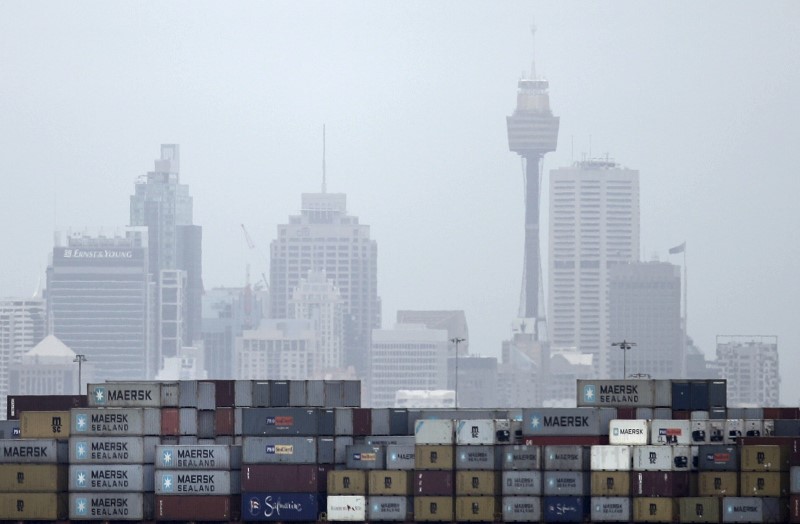By Wayne Cole
SYDNEY (Reuters) - Brexit cheerleaders are heading for a cold shoulder if they think the mother country can waltz into the warm embrace of her English-speaking siblings and win free trade deals with them.
Supporters of Britain's exit from the European Union argue that "family ties" could compensate for the partial loss of the Continent's 444 million customers.
David Davis, a Conservative MP and die-hard eurosceptic, outlined their ambitions in a recent exhaustive speech.
"This is an opportunity to renew our strong relationships with Commonwealth and Anglosphere countries," he said.
"These parts of the world are growing faster than Europe. We share history, culture and language. We even share similar legal systems. The usual barriers to trade are largely absent."
What is also absent is motive, at least on the part of former colonies Australia, New Zealand and Canada.
After all, Britain's entry into the Common Market in 1973 was widely considered a betrayal at the time, upending decades of tradition and a host of tariff agreements. Australia was especially hard hit, and resentment still lingers.
"The 1970s were a bloodbath for the dairy industry," said Stephen Henty, a dairy farmer in Victoria. "There was no market for calves so we were forced to shoot calves and bury them because they weren't worth anything."
But that was then.
"We were pretty much tied to the UK's apron strings and when they pulled the pin, we suffered," he adds. "We have a lot more markets where our products are sold into now. The UK leaving the EU wouldn't have any impact this time."
Just a glance at trade flows speaks volumes. Britain takes only 2.5 percent of Australia's exports, China more than 31 percent. Around 5 percent of New Zealand's exports go to the UK, while Canada sends less than 3 percent of its export there.
The detachment goes both ways, with Canada 19th on the table of export destinations for the UK and Australia a rung behind.
That might mean there is room for growth, but it is not clear what they would trade in. Australia's biggest single export is iron ore, but Britain has no steel industry.
New Zealand used to be synonymous with butter and cheese to British consumers. Now, it is Chinese babies that guzzle much of New Zealand's milk output.
EVERYONE BUT THE UK
The priorities show clearly in trade diplomacy.
In just the past year, Australia has sealed free trade deals with China, South Korea and Japan. Yet it only began talks on an agreement with the European Union in November, a process that routinely takes years.
New Zealand has inked trade deals across Asia and was the first developed country to sign with China but it has not struck a single deal with a European nation.
Canada is so enmeshed in NAFTA, a North American trade bloc, that the United States takes three quarters of its exports.
All three recently concluded the 12-member Trans-Pacific Partnership Agreement (TPP), a wide-ranging pact that took seven years of effort and much political will to finalise.
For all the shared history, Britain is a fading presence in its former colonies. Australia's Prime Minister is an avowed Republican. New Zealand is voting on whether to remake its flag without a Union Jack.
It's possible a trade deal with a British Tory government might not be an urgent priority for Canada's new left-leaning, French speaking leader, Justin Trudeau.
"If anything, the UK might actually lose investment from Canada and lose Canadian interest if they're not part of the European market because the European market is much bigger than the UK," said Jayson Myers, chief economist at the Canadian Manufacturers and Exporters association.

"I don't really see a lot of interest in just doing business with the UK."